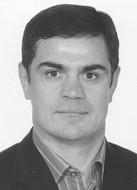Afferent synthesis skills building method for motor performance improvement in boxing
Фотографии:
ˑ:
Dr.Hab., Professor I.S. Kolesnik1
Postgraduate D.A. Osipov1
Postgraduate F.A. Gatin1
1Ulyanovsk State Pedagogical University named after V.I. Ulyanov, Ulyanovsk
The study offers a new afferent synthesizing skills building method to improve efficiency of the athletic training systems in boxing in application to 13-14 year-old boxers of mass sport qualifications. The new model designed and offered by the authors is driven by the afferent synthesis of attacking and defensive actions and their key elements. The synthesis gives the means to set mission and goals and the ways to them based on the general athletic training and education principles; and find the conditions and factors of influence on the afferent synthesizing skills building. The skills excelling method includes a set of special exercises; creative physical practices; special education system; and the motor skills rating criteria.
The model piloting experience made it possible to find internal correlations of different elements of the afferent synthesis; specify every element of motivations and memorizing skills; and every element of the environmental and start-up information. This gives the means to design the motivations control methodology; develop and improve memory; and apply the environmental and start-up information in the highly competitive bouts. The afferent synthesizing skills building method was found to help establish feedbacks in the interpersonal relations; and objectively rate the training process efficiency.
Keywords: athletic training system, boxing, afferent synthesis, modelling, method.
References
- Akopyan A.O. et al Boks: Primernaya programma sportivnoy podgotovki dlya detsko-yunosheskih sportivnykh shkol, spetsializiruyuschikh detsko-yunosheskikh shkol olimpiyskogo rezerva [Boxing: Sample sports training program for children and youth sports schools, specialised children's and youth schools of Olympic reserve]. 2nd ed., ster. Moscow: Sovetskiy sport publ., 2007, 72 p.
- Anokhin P.K. Ocherki po fiziologii funktsionalnykh sistem [Essays on Physiology of Functional Systems]. Moscow: Meditsina publ., 1975, 447 p.
- Anokhin P.K. Uzlovye voprosy teorii funktsionalnoy sistemy [Key issues of functional system theory]. Moscow: Nauka publ., 1980, 196 p.
- Bal’sevich V.K. Ontokineziologiya cheloveka [Human Ontokinesiology]. Moscow: Teoriya praktika fizicheskoy kultury, 2000, 275 p.
- Bleyer A.N. Psikhologicheskie faktory obespecheniya psikhomotornykh deystviy v edinoborstvakh [Psychological factors of sustainability of psychomotor activities in martial arts]. Teoriya i praktika fiz. kultury, 2008, no. 2, pp. 28-32.
- Kolesnik I.S. Osnovnye napravleniya povysheniya effektivnosti sistemy sportivnoy podgotovki kvalifitsirovannykh bokserov [Basic directions of increase of efficiency of skilled boxers' athletic training system]. Moscow: Flinta: Nauka publ., 2010, 350 p.
- Kolesnik I.S. Intellektualnaya podgotovka bokserov [Intellectual training of boxers]. Moscow: Teoriya i praktika fizicheskoy kultury, 2015, 132 p.
- Nazarenko L.D., Kolesnik I.S. Fiziologiya fizicheskikh uprazhneniy [Physiology of physical exercises]. Ulyanovsk, 2011, 255 p.
- Neverkovich S.D., Kiseleva E.V. Filosofiya trenerskoy deyatelnosti [The philosophy of coaching]. Sportivny psikholog, 2007, no. 3 (12), pp.76-79.




 Журнал "THEORY AND PRACTICE
Журнал "THEORY AND PRACTICE